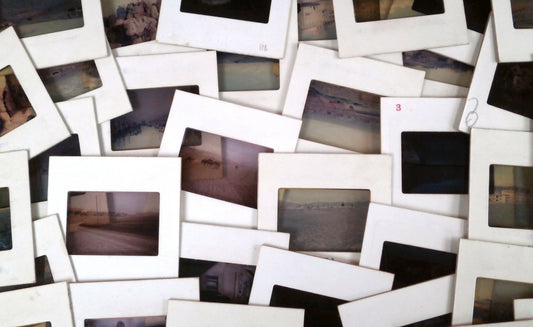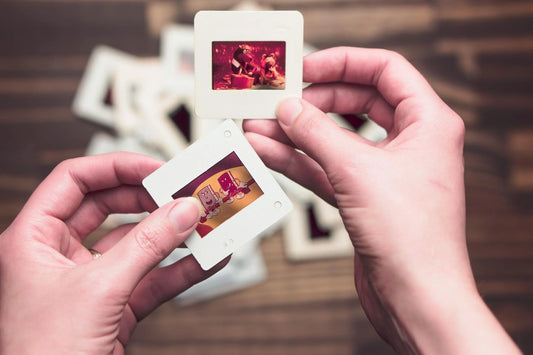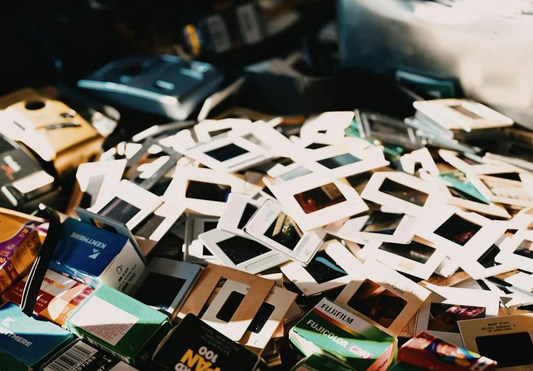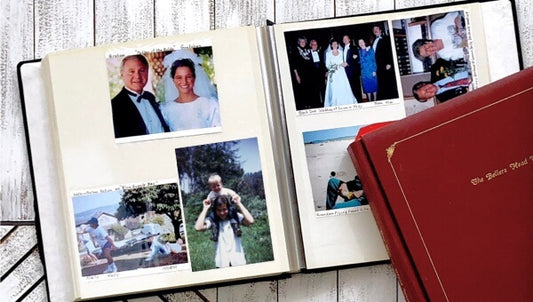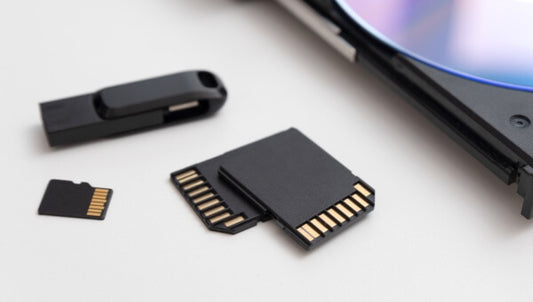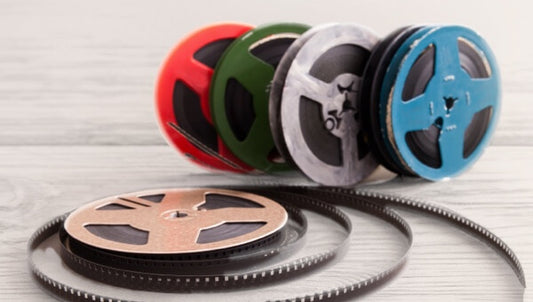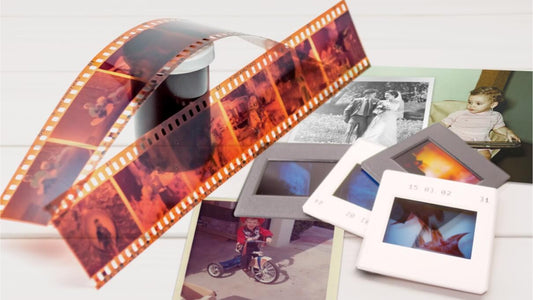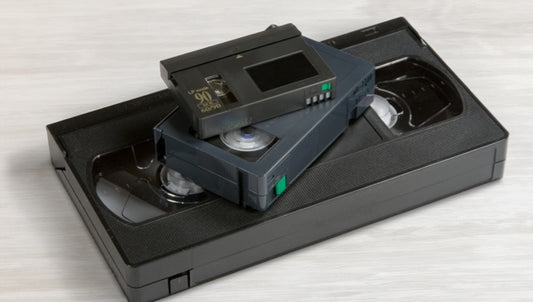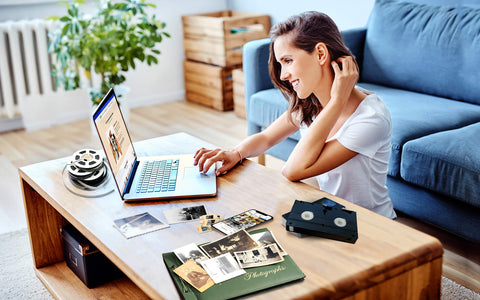Before the digital age, slides were an incredible way to not only capture your memories, but to share them with friends and family members on a projector. Nowadays, millions of Americans still have the slides, but lack a projector. With a quality slide converter, you can preserve memories and make it even easier to share them online with loved ones.
However, not all slide converters are equal, which is why Capture archival experts with over 20 years of experience put together this unbiased guide to the best slide converters. That way, you can choose an option that delivers high-quality results, without breaking your budget.
Keep reading to learn about slide converters, the different types you can choose from, some of the top models, and a guide to choosing the best one for your needs.
Jump to:
- Understanding Slide Converters
- Types of Slide Converters
- Key Features to Look for in a Slide Converter
- Comparison of Popular Slide Converter Options
- The Importance of User Experiences and Recommendations
Understanding Slide Converters
Image Source: https://www.toptenreviews.com/best-slide-to-digital-image-converters
Not sure what to do with old slides? A slide to digital converter turns your analog slide into digital images. To do so, they scan the slide film and upload it to a digital device, whether it’s the converter yourself, a phone, or a computer.
This process not only ensures your photos never fade or become damaged, which is always a concern with physical media, but also allows you to share your memories online via email or social media. Plus, it makes organizing photos easier with digital files and folders stored on a hard drive or the cloud. Not only that, but you can enhance scanned images easily with editing software tools.
However, not all slide converters are equal, and some may not provide optimal quality. The images could end up blurry, distorted, or discolored. That’s why it’s critical to choose the best slide digitizer based on various factors including affordability, ease of use, resolution, and more.
Before we look at that, what are the types of slide converters you should consider?
Types of Slide Converters
There are several different types of slide scanners including portable slide scanners, smartphone apps and accessories, and all-in-one converters.
Portable Slide Scanners
Portable slide scanners are compact models that scan the slides while allowing for easy use anywhere. Because of this, they generally have a built-in slide viewer LCD screen for an easy scanning process on the go.
Some popular portable scanners include the Kodak Slide N Scan and the Wolverine F2D Mighty. They will produce exceptional images without taking up too much space and do not require a computer either.

Pros of Portable Slide Scanners
- Easy to use
- Compact size
- Built-in screen (usually)
- No computer required
Cons of Portable Slide Scanners
- Might not offer the high resolution of a larger machine
- Built-in memory can be limited (meaning an SD Card might be necessary)
Smartphone Apps and Accessories
Another option is to use your smartphone’s camera to scan the slides, which is exactly what mobile film and slide scanner apps do. They will be portable as well and very affordable, but rely on your phone’s camera, which means they offer poor quality when compared to other options.
Popular app options include Apple SlideScan, Photomyne, and FilmLab, but it’s also recommended that you get a physical device that limits the light and allows for easy, centered scanning. The most popular of these devices are the Rybozen Mobile Film Scanner and the Kodak Mobile Film Scanner.

Pros of Smartphone Apps and Accessories
- Easy to use
- Affordable
- Portable
- Fast
Cons of Smartphone Apps and Accessories
- Poor quality
- Might require additional accessories
All-in-One Converters
Finally, all-in-one converters combine slide conversion with other functions ranging from built-in editing tools to printers, Wi-Fi sharing, slideshows, and more. These options are more expensive than the alternatives, but generally produce the best results not only for high-resolution digital images, but for other purposes depending on the machine.
Some leverage a high-quality flatbed scanner or upright film scanner like the Epson FastFoto FF-680W, while others like the Wolverine Titan 8-in-1 can convert 35mm slides to digital as well as other types in just 3 seconds, with built-in loading and easy sharing.

Pros of Smartphone Apps and Accessories
- High-quality results
- Extra functionality
- Personalized settings
- Accept many slide and film types
Cons of Smartphone Apps and Accessories
- Most expensive option
- Can be complex and harder to use
Key Features to Look for in a Slide Converter

To get the best slide scanner for your old slides and precious memories, it’s important to look at some key factors and features like cost, simplicity, and quality.
Affordability
Obviously, you don’t want to spend too much to convert slides to digital pictures, but, indeed, more expensive options often produce better results. Because of that, make sure you balance affordability with the other factors.
Ease of Use and User Interface
Some slide-to-digital converters are easier to use than others. If you’re not tech-savvy, then this is an important consideration when making your decision.
Image Quality and Resolution
Compare the DPI resolution between different options to discover which choices offer the highest image quality. Remember, the result is how future generations will remember your memories and possibly you too.
Compatibility with Different Slide Formats
Not all slide convert options work for all slide types, so make sure that you find one that works for the slide types that you have.
Additional Features
Finally, make sure you consider additional features and capabilities like a built-in screen, computer adapters, editing tools, sharing options, memory card compatibility, and more.
Comparison of Popular Slide Converter Options
Now that you know the different types and what to look for, it’s time for unbiased reviews of the best slide converter options to help you make your decision.
Kodak Slide N Scan
The Kodak Slide N Scan is an exceptional option with a built-in 7” LSC screen. It performs slide scanning and 35mm negative scanning, turning memories into JPEG files using a powerful 14MP sensor. While it has a built-in screen and SD card slot, you can also connect it to your computer using an adapter.

Pros
- Converts both film negatives (135, 110, 126mm) and slides (135, 110, 126mm)
- Has a built-in viewing screen
- Offers editing tools
- High quality images
Cons
- At $199, it’s more expensive than alternatives
- Requires either a memory card or computer adapter
- Can be a little complicated
Magnasonic All-in-One
This portable and easy-to-use slide converter offers a 2.4” LCD display as well as RCA cable compatibility so you can view old photo slides on your television. It has 64MB of internal memory as well as an SD card slot. Plus, it offers brightness and color settings for better results.

Pros
- Very easy to use
- Works for 35mm, 110, 126, 8mm, and Super 8 film as well as 135, 110, and 126 slides
- Built-in memory
- Very affordable
Cons
- Not as high-quality results as some options
- Negative reviews highlight cheap materials
Wolverine Titan 8-in-1
This digital film scanner is one of the most popular options due to the built-in screen, fast scanning process, and HDMI connection to HD TVs. It’s fairly portable with no computer required and works for several film and slide types.

Pros
- Built-in screen
- HDMI cable to TV capability
- Fast scanning process with speed-load adapters
Cons
- Color might be slightly off on some slides
- Image sharpness isn’t great, especially for slides.
DigitNow Film & Slide Scanner
This machine offers great quality with great megapixels and 1800 DPI resolution while still costing only $59.99 on Amazon, making it one of the most value-driven options available. It used a USB cable to connect to both Windows and Mac computers as well. With only a few buttons and a built-in screen, it’s also quite easy to use.

Pros
- Above average quality results
- Affordable price tag
- Easy to use
Cons
- Has some glitches and slides may jam
- Slow slide scanning process
Plustek OpticFilm 8100
While this machine comes with a hefty price tag of $349 on Amazon, it also offers unmatched resolution with 7200 DPI 69 MP Resolution. The coloration is also great and it comes with professional software options for top-quality results. It even offers dust and scratch removal software tools.

Pros
- Top-quality results
- Durable design
- Comes with a carrying case and software bundle
Cons
- Not easy to use
- Expensive
PhotoMyne Slide Scanning App
PhotoMyne SlideScan is an app that allows you to capture the images from your slides directly onto your phone. It’s quite affordable, costing $47.99 for a 2-year plan, but it does depend on your phone’s camera so the quality can range from average to terrible. Still, it’s one of the easiest photo scanning apps to use and offers a suite of built-in editing tools and more.

Pros
- Affordable option
- Fast and easy to use
- PhotoMyne offers various photo scanning apps and editing tools
Cons
- Requires a backlight source for slide scanning
- Quality can be very poor depending on your phone’s camera
The Importance of User Experiences and Recommendations
While we’ve included our own experience as well as reviews in our unbiased reviews of the top slide converter models, it’s important that you check reviews yourself because your specific needs and goals might be different than our own.
For example, you might want to create a slideshow that mimics an old film projector, allow for easy editing, or want a more portable option. User reviews can give you insight into all the important factors you’ll want to consider when choosing where to get slides made into photos near me.
Finally, if you want a more passive approach, don’t forget to consider a slide and photo scanning service like Capture. We can turn your favorite slides into high-quality digital images in less the 30 days, while monitoring your precious memories every step of the way using our state-of-the-art tracking and security system.
Still, if you prefer to use a photo scanner to transfer your slides yourself, make sure to consider the decision from all angles including affordability, ease of use, image quality, compatibility, additional features, and user experiences.
Conclusion
Whether you want a portable slide converter like Magnasonic All-in-One, the highest quality using a Plustek OpticFilm 8100, or a budget-friendly choice with good quality like the DigitNow Film & Slide Scanner, you have all the information you need to make the best decision for your priceless memories.
If you want to save time and get professional digital photos, choose Capture to transfer your slides to digital. We’ll deliver results in 30 days or less and our services start at the affordable price of $29.99 for 50 slides (50 cents for each additional slide). Plus, we can transfer your old photos, film reels, VHS tapes, and more to digital format. Click here to start your order today!


